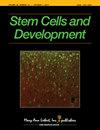Regorafenib induces the apoptosis of gastrointestinal cancer-associated fibroblasts by inhibiting AKT phosphorylation.
IF 2
3区 医学
Q3 CELL & TISSUE ENGINEERING
引用次数: 3
Abstract
Cancer-associated fibroblasts (CAFs) are a key component of tumor microenvironment and are essential for tumorigenesis and development. Regorafenib is a multikinase inhibitor that targets CAFs and suppresses tumor growth. Here, we investigated the effects of regorafenib on gastrointestinal CAFs and the underlying molecular mechanisms. First, we established two in vivo tumor models, the cancer cell line HCT116 with or without mesenchymal stem cells (MSCs) and treated them with regorafenib. We found that the application of regorafenib potently impaired tumor growth, an effect that was more pronounced in tumors with a high stromal ratio, thus demonstrating that regorafenib can inhibit CAFs proliferation and induce CAFs apoptosis in vivo. Moreover, we showed that regorafenib affected macrophage infiltration by reducing the proportion of CAFs in tumors. Afterward, we induced MSCs into CAFs with exosomes to establish an in vitro model. Then, we used MTS and flow cytometry to detect the effects of regorafenib on the proliferation and apoptosis of CAFs, and Western blot to determine the expression level of apoptosis-related proteins. We found that regorafenib inhibited the proliferation of CAFs and induced the apoptosis of CAFs in vitro. Furthermore, Western blot results showed that regorafenib down-regulated the expression of B-cell lymphoma-2 (Bcl-2) and concurrently up-regulated the expression of Bcl-2-associated X (Bax), and regorafenib inhibited the phosphorylation pathway of AKT in CAFs. In conclusion, our results provide a model in which regorafenib induces CAFs apoptosis by inhibiting the phosphorylation of AKT, and regorafenib affects macrophage infiltration by reducing the proportion of CAFs in tumor tissues.雷戈非尼通过抑制AKT磷酸化诱导胃肠道癌症相关成纤维细胞凋亡。
癌相关成纤维细胞(CAFs)是肿瘤微环境的关键组成部分,对肿瘤的发生和发展至关重要。雷戈非尼是一种靶向CAFs并抑制肿瘤生长的多激酶抑制剂。在此,我们研究了雷戈非尼对胃肠道CAFs的影响及其潜在的分子机制。首先,我们建立了两种体内肿瘤模型,即含有或不含有间充质干细胞(MSC)的癌症细胞系HCT116,并用瑞戈非尼治疗。我们发现,雷戈非尼的应用有效地损害了肿瘤生长,这种作用在具有高基质比率的肿瘤中更为明显,从而表明雷戈非尼可在体内抑制CAFs增殖并诱导CAFs凋亡。此外,我们发现雷戈非尼通过降低肿瘤中CAFs的比例来影响巨噬细胞的浸润。然后,我们用外泌体将MSCs诱导成CAFs,以建立体外模型。然后,我们使用MTS和流式细胞术来检测瑞戈非尼对CAFs增殖和凋亡的影响,并使用Western印迹来确定凋亡相关蛋白的表达水平。我们发现雷戈非尼在体外抑制CAFs的增殖并诱导CAFs凋亡。此外,Western印迹结果显示,瑞戈非尼下调B细胞淋巴瘤-2(Bcl-2)的表达,同时上调Bcl-2相关X(Bax)的表达。瑞戈非尼可抑制CAFs中AKT的磷酸化途径。总之,我们的研究结果提供了一个模型,其中雷戈非尼通过抑制AKT的磷酸化诱导CAFs凋亡,而雷戈非尼则通过降低肿瘤组织中CAFs的比例来影响巨噬细胞浸润。
本文章由计算机程序翻译,如有差异,请以英文原文为准。
求助全文
约1分钟内获得全文
求助全文
来源期刊

Stem cells and development
医学-细胞与组织工程
CiteScore
7.80
自引率
2.50%
发文量
69
审稿时长
3 months
期刊介绍:
Stem Cells and Development is globally recognized as the trusted source for critical, even controversial coverage of emerging hypotheses and novel findings. With a focus on stem cells of all tissue types and their potential therapeutic applications, the Journal provides clinical, basic, and translational scientists with cutting-edge research and findings.
Stem Cells and Development coverage includes:
Embryogenesis and adult counterparts of this process
Physical processes linking stem cells, primary cell function, and structural development
Hypotheses exploring the relationship between genotype and phenotype
Development of vasculature, CNS, and other germ layer development and defects
Pluripotentiality of embryonic and somatic stem cells
The role of genetic and epigenetic factors in development
 求助内容:
求助内容: 应助结果提醒方式:
应助结果提醒方式:


